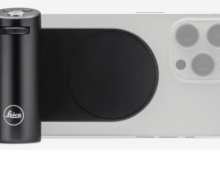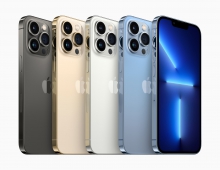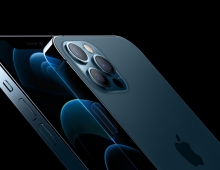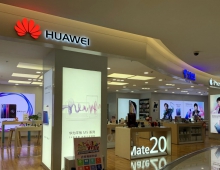
Apple Says Battery Tests For iPhone 6s Lineup May Be Misleading
The A9 SoC in Apple’s iPhone 6s lineup is dual sourced by TSMC (16nm A9) and Samsung (14nm A9), so their respective demands for power might be significantly different. But Apple says they just vary slightly.
Responding to some benchmarks that showed that there may be a big difference in the battery life of the iPhone 6s equipped with a TSMC and another one based on a Samsung A9 chip, Apple said that every chip meets Apple's highest standards for providing incredible performance and deliver great battery life, regardless of iPhone 6s capacity, color, or model.
One test showed Samsung’s chip consuming 20 percent more battery life, while another test showed a "nearly 1.5 times difference in battery life." Samsung’s chip also ran hotter than the TSMC version in these benchmarks, both conducted with Primate Labs’ GeekBench.
"Certain manufactured lab tests which run the processors with a continuous heavy workload until the battery depletes are not representative of real-world usage, since they spend an unrealistic amount of time at the highest CPU performance state. It's a misleading way to measure real-world battery life. Our testing and customer data show the actual battery life of the iPhone 6s and iPhone 6s Plus, even taking into account variable component differences, vary within just 2-3% of each other," Apple said.
Apple likely refers to GeekBench battery life benchmark, which runs parts of the GeekBench CPU benchmark in a loop. The software does a specific amount of work per time interval while idling the rest of the time. But when you are actually using your phone, the SoC is idling for the vast majority of the time, meaning your sceen consumes most of the available battery power.
The "variable component differences" mentioned by Apple include the two different versions of the A9 SoC. In theory, the 14-nm Samsung A9 variant could be reaching higher average temperatures due to its smaller die size, which could persumably affect power draw due to increased leakage.
But even if you were able to compare more than two TSMC A9 or Samsung A9 chips, coming up with a safe conclusion about their differences in terms of power consumption is very difficult, unless you test a large amount of chips and determine the distribution.
It comes down to chip manufacturing: when a wafer comes out of production, the individual chips may have varying quality. It's up to Apple or any customer to set the quality tolerances for the chips it would use in the iPhones. While Apple could disqualify more chips and thereby reduce the yield, they will always have a certain degree of variation.
So it is obvious why the iPhone - and many other electronic devices - are promoted and advertised using terms such as 'minimum battery life' and not absolute numbers.
Apple hasn’t denied that TSMC chips fare better when running at full throttle for prolonged periods. But still, other tests show Samsung and TSMC chips varying by closer to 5 percent with more realistic use cases, such as recording timelapse and exporting 4K video.





















